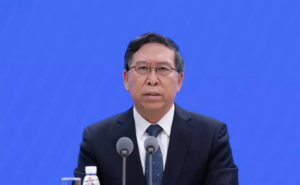
How to buy Pfizer’s new crown oral drug after the failure of health insurance negotiations? Or extend the temporary reimbursement time limit
On January 8, the new round of national health insurance negotiations came to an end. The much-anticipated anti-neo-coronavirus small molecule drug nematovir/ritonavir tablets (Paxlovid) did not enter the national medical insurance catalog through the negotiations.
The National Health Insurance Bureau released a news release on the evening of January 8, saying that among the three new coronavirus treatment drugs involved in the health insurance negotiations, Azivudine Tablets and Clear Lung Detox Particles were successfully negotiated, while Paxlovid failed due to the high price quoted by the manufacturer Pfizer Investment Co.
Or extend the temporary reimbursement
According to the National Bureau of Medical Security, Department of Pharmaceutical Management, although Paxlovid was not included in the medical insurance catalog through negotiations, but according to the recently released “Notice on Optimizing Medical Security Related Policies for Patients with New Coronavirus Infection Treatment Costs after the Implementation of Class B B Management,” the requirements of the “New Coronavirus Infection Treatment However, according to the recently released “Notice on Optimizing Medical Security Policies for Patients with New Coronavirus Infections after the Implementation of Class B, B Management”, all therapeutic drugs in the “Treatment Plan for New Coronavirus Infections (Trial 10th Edition)” (hereinafter referred to as “10th Edition Treatment Plan”), including Paxlovid, Azulfidine Tablets, Monoravir Capsules and Dispersing Cold and Dampness Granules, will be temporarily paid by medical insurance until March 31, 2023.
However, it is worth noting that the indication for this negotiation of Azivudine is AIDS and does not involve the new crown indication. In other words, there is uncertainty about the Medicare reimbursement for Paxlovid, Monolaivir and Azivudine for New Crown treatment after the end of March this year.

In this regard, a health care reform expert told Interface News that there is a possibility of reassessing and extending the temporary health insurance reimbursement timeline based on the corresponding documents thereafter. “It should be a big possibility that the use of the back of the said can not be used will have a big problem. It depends on the development of the epidemic, the overall consideration.” He said.
And compared to the temporary inclusion of health insurance coverage, drugs through negotiations into the national health insurance directory more “formal”. In the national negotiations, the low price given by the National Health Insurance Bureau usually takes into account both the pharmacoeconomic value of the drug and the affordability of the national health insurance fund.
The NPS pointed out that the failure of the Paxlovid negotiations was due to Pfizer’s high offer. According to the Caixin report, Pfizer basically did not reduce the price in the health insurance negotiations, for the NPS bottom price, the above health care reform experts to interface news analysis, due to China’s limited level of health insurance funding, and the new crown infection and the corresponding need for a large number of people with drugs, the largest consideration of the NPS is still the affordability of the health insurance fund.
There are separate price guidelines for new coronary drugs
In addition, for anti-neostriatal drugs that will be available after January 1, 2023, the National Health Insurance Administration (NHA) issued the “Guidelines on Price Formation for New Coronavirus Drugs (Trial)” (hereinafter referred to as “Price Guidelines”) on January 6.
This actually provides a basis for the pricing of anti-neo-coronavirus small molecule drugs that will be marketed during the period after the release of the 10th edition of the treatment plan on January 6 and before the new round of health insurance negotiations in 2023.
The Price Guidelines call for the centralized acceptance and national adoption of the first offer for anti-neo-coronavirus drugs entering the domestic centralized pharmaceutical procurement market for sale for the first time, with special instructions on the cost components of the drug such as API costs, direct R&D costs, period cost rates, as well as innovation and economics.
Among them, in innovation and economy, the first offer of new drugs converted to a comprehensive conversion of the cost of treatment should be lower than or equivalent to the control drug, generic drugs are not more than 60% of the price of the generic object as a reference benchmark.
The above health care reform experts said that the “price guidelines” to the future listing of anti-new coronavirus drugs to provide a clear reference relationship, it also makes the price of drugs more transparent and better reflect the value of drugs. However, for the commercial impact of drugs listed thereafter, he believes that it involves a variety of evidence factors such as indications, key clinical trial endpoints, and effectiveness of different drugs, which require specific analysis for different drugs.
In addition, price reassessment and dynamic adjustment are implemented for drugs officially listed on the network, and the trigger conditions include price reductions of more than 30% for innovative and economically evaluated control drugs, median international price decreases of more than 10% for drugs, and conversion of imported drugs to localized production.
In August and October 2022, Pfizer entered into a manufacturing and supply master agreement with Huahai Pharmaceuticals to provide contract manufacturing services for Paxlovid sold by Pfizer in the mainland China market during the term of the agreement; and entered into a mainland China market license and supply agreement with Gloria Pharmaceuticals for Paxlovid. Ritonavir license and supply agreement with Gloria Pharmaceuticals for Paxlovid in mainland China.
In September of the same year, Merck Sharp & Dohme had announced the granting of the distribution and exclusive import rights for Monoprevir to Sinopharm. At the same time, the two parties will assess the feasibility of technology transfer to manufacture, supply and commercialize the drug in China. However, the transfer of imported drugs to localized production also involves relevant review and approval processes, which may take some time.
In terms of drug value, at present, the anti-neo-coronavirus small molecule oral drugs approved in China and included in the 10th edition (latest version) of the treatment plan are Paxlovid from Pfizer, Azivudine from Henan Real Biologics and Monoravir from Mercer East. Among them, Paxlovid and Monoprevir are both suitable for adult patients with mild or medium-sized disease within 5 days of onset and with high risk factors for progression to severe disease, and are used to prevent high-risk infected patients from progressing to severe disease; while Azivudine is used to treat adult patients with medium-sized neocoronavirus infection.
In terms of clinical data, the phase III clinical study of monoprevir showed a 30% reduction in the risk of hospitalization/mortality in people with neocolonial infection who were not vaccinated against neocolonial, were in mild to moderate disease, and had high-risk factors. In contrast, the Phase II/III clinical trial of Paxlovid showed that the drug reduced the risk of hospitalization or death from disease by 89% in high-risk adults with new crown infection who took the drug within 3 days of the onset of symptoms. This is the product with the best efficacy data in preventing progression to severe disease. paxlovid was conditionally approved in China in February 2022, included in the 9th edition of the treatment protocol in March, and recommended by the World Health Organization in April.
Paxlovid is still in short supply
At present, Paxlovid has been put into clinical use in many places, but it is still in short supply in China. Its main purchase channels are offline medical institutions and online medical platforms, and it needs to be purchased with a prescription and used under the guidance of a doctor. Previously, the National Health Insurance Bureau issued a document on January 6, saying that the contradiction between supply and demand and price problems of the two drugs approved for marketing in the early days, Azivudine tablets and Paxlovid, were more prominent, and the two drug manufacturers and operators had been interviewed, and the companies had taken the initiative to take measures to reduce prices. Currently, the purchase price of Paxlovid is reduced from 2300 yuan/box to 1890 yuan/box.
In addition, as a new crown infection early treatment drug, Paxlovid has also been sunk to community health service centers and community hospitals in many places such as Beijing, Shanghai and Guangzhou. However, the availability of each hospital also varies. on January 9, the interface news reporter called a number of community hospitals in Beijing and Shanghai as family members, many hospitals said they can prescribe Paxlovid, but need to be positive for nucleic acid or antigen and meet conditions such as 65 years old or older, with priority given to those who have underlying diseases and have not been vaccinated, and some hospitals also said they give priority to contracted patients and residents of this street to supply the drug.
The community health service center operator in East Nanjing Road, Shanghai, told reporters that up to 10 boxes of Paxlovid can be prescribed a day, but also the community health service center operator in Yongding Town, Mentougou District, Beijing, told reporters that plans have been made, but Paxlovid has not yet been distributed to the hospital, and it is not known when it will arrive. In addition, on January 7, the “Daily Economic News” reporter in the name of the patient consultation, Shanghai Huangpu District Huaihai Middle Road Community Health Service Center staff said that Pfizer’s Paxlovid has been cut off, the current supply of drugs is relatively tight.
The above health care reform experts told Interface News that under the above circumstances, Pfizer may not have much incentive to reduce prices. However, at present, Yannoyi, Junshi Biologicals, Pioneer Pharmaceuticals, Centrum Pharmaceuticals and Zongsheng Pharmaceuticals all have similar products close behind. In addition, according to a Reuters report, the State Drug Administration is in talks with Pfizer to obtain a generic license for Paxlovid. As a result, he sees the possibility of further price reductions for Paxlovid in the future as the supply of anti-neo-coronavirus small molecule drugs increases.


Average Rating